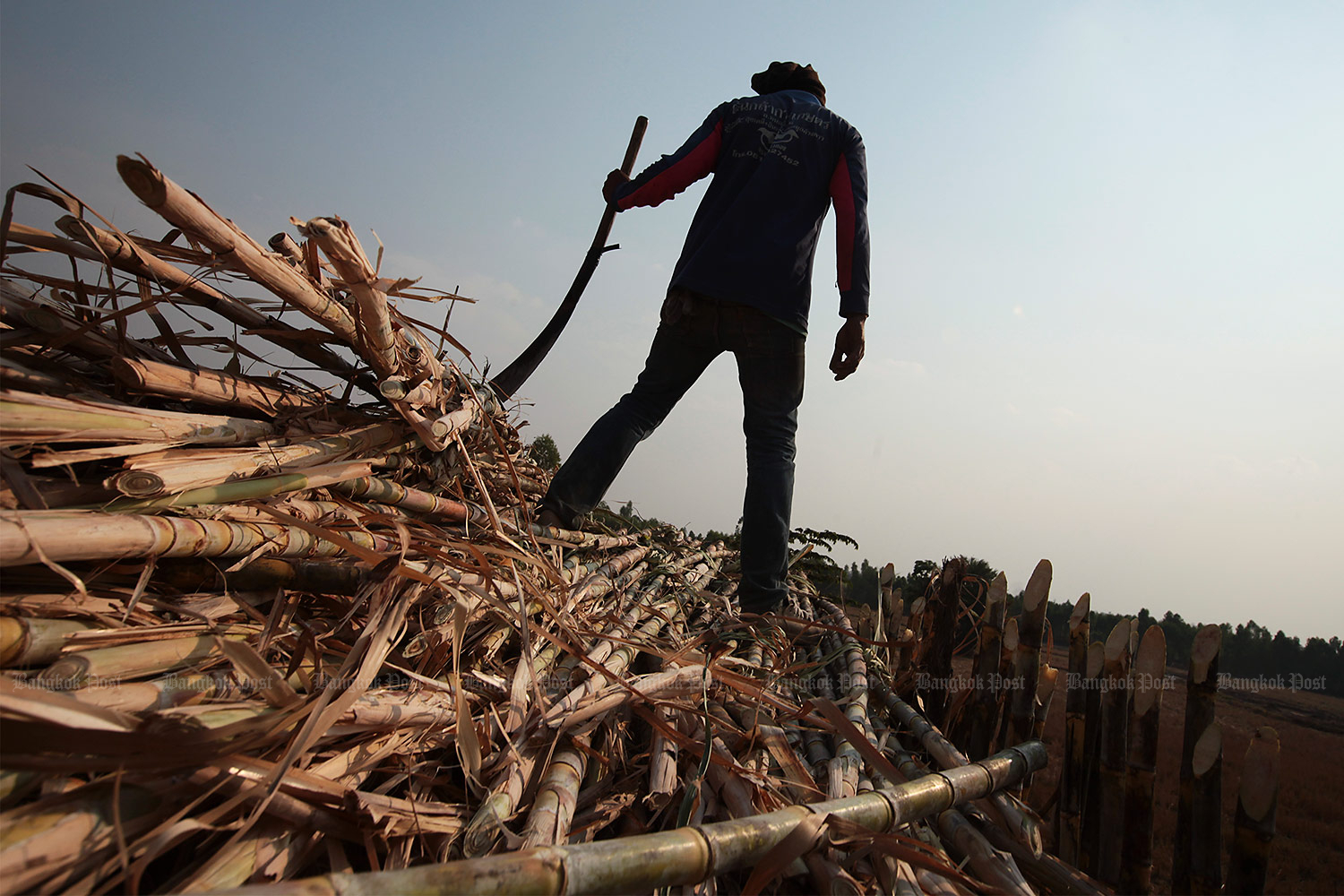
The cabinet on Monday approved fresh measures to convince sugar cane farmers to boost their productivity and reduce burning.
The new measures include a 3% interest rate subsidy to be given to farmers and agricultural cooperatives that take out soft loans from the state-owned Bank for Agriculture and Agricultural Cooperatives (BAAC) to buy machinery and invest in water supply development.
The BAAC is scheduled to offer soft loans to farmers worth 6 billion baht over a period of three years, from 2022-2024, or 2 billion baht per year.
It is estimated that the interest rate subsidy will use a combined 789.7 million baht of government money.
Each farmer and agricultural cooperative is eligible to borrow 500,000 baht in the area of water management. They are allowed to borrow up to 2-15 million baht when purchasing machinery.
Deputy government spokeswoman Rachada Dhnadirek said the state will subsidise 3% of the interest rate, while the BAAC will subsidise 1.50% of the interest rate. Farmers are required to pay only 2%.
Farmers who take out a soft loan for water supply development are required to repay the loan within six years, and those who use a loan for purchasing machinery are required to repay the loan within eight years.
In the case of agricultural cooperatives or community businesses, they are required to pay 2% of the interest rate, with the government subsidising 2% and the BAAC contributing 0.875%.
Farmers who borrow loans for purchasing trucks are required to pay 4% of the interest rate, with the BAAC subsidising 1%. The government will not offer subsidies here.
The Industry Ministry reported to the cabinet that the government needs to continue giving assistance to sugar cane farmers because state support for purchasing machinery for harvesting and water supply development can increase productivity and reduce levels of hazardous particulate matter smaller than 2.5 microns (PM2.5). It can also help to address labour shortages.